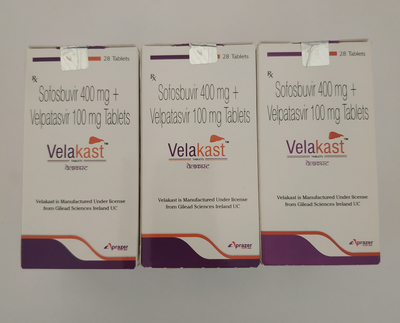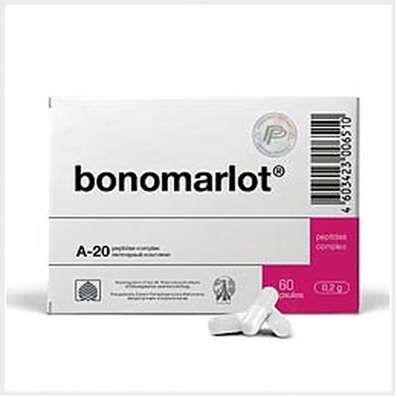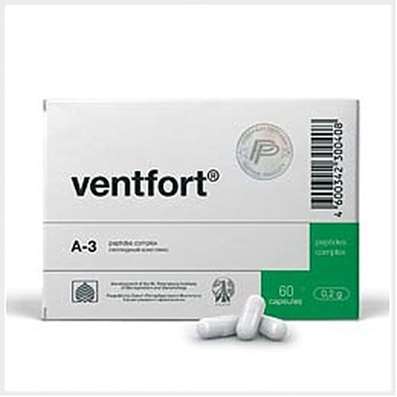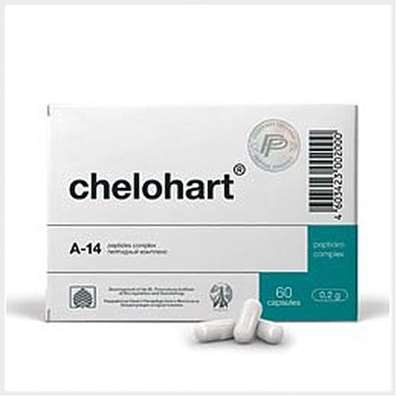Instruction for use: Acnecutan
I want this, give me price
Active substance Isotretinoin
ATX code D10BA01 Isotretinoin
Pharmacological group
dermotropic means
Nosological classification (ICD-10)
L70 Acne
Acne nodulocystica, Acne, Comedone acne, Acne Treatment, Papulous pustular acne, Papulopustulicular acne, Papulo-pustular acne, Acne, Acne Disease, Acne, Acne vulgaris, Nodular-cystic acne, Nodular-cystic acne
Composition
Capsules 1 caps.
active substances:
isotretinoin 8/16 mg
auxiliary substances: Gelucir® 50/13 (mixture of esters of stearic acid of polyethylene oxide and glycerol) - 96/192 mg; purified soybean oil - 52/104 mg; Span 80® (sorbitan oleate - mixed esters of oleic acid and sorbitol) - 8/16 mg
capsule, 8 mg: body and lid - gelatin, iron dye red oxide (E172), titanium dioxide (E171)
capsule, 16 mg: body - gelatin, titanium dioxide (E171); lid - gelatin, titanium dioxide (E171), iron dye oxide yellow (E172), indigocarmine (E132)
Description of dosage form
Capsules, 8 mg: hard, gelatin, size 3, brown.
Capsules, 16 mg: hard, gelatin, size 1, body white, lid green.
The contents of the capsules are a waxy yellow-orange paste.
pharmachologic effect
Pharmacological action - anti-inflammatory, anti-seborrheic.
Pharmacodynamics
Isotretinoin is a stereoisomer of fully trans-retinoic acid (tretinoin).
The exact mechanism of action of isotretinoin has not yet been revealed, but it has been established that the improvement in the clinical picture of severe forms of acne is associated with suppression of sebaceous gland activity and histologically confirmed decrease in their size. Skin fat is the main substrate for the growth of Propionibacterium acnes, so reducing the formation of sebum suppresses the bacterial colonization of the duct.
Acnecutan® suppresses the proliferation of sebocytes and acts on acne, restoring the normal process of cell differentiation, stimulates regenerative processes.
In addition, the anti-inflammatory effect of isotretinoin on the skin has been proven.
Pharmacokinetics
Since the kinetics of isotretinoin and its metabolites is linear, its concentration in plasma during therapy can be predicted on the basis of data obtained after a single dose. This property of the drug also suggests that it does not affect the activity of microsomal liver enzymes involved in the metabolism of drugs.
The high bioavailability of the drug Acnecutan® is due to the high proportion of dissolved isotretinoin in the drug and may increase if the drug is taken with food.
In patients with acne, after administration of 80 mg of isotretinoin, fasting plasma Cmax in the equilibrium state was 310 ng / ml (range 188-473 ng / ml), Tmax - 2-4 h. The concentration of isotretinoin in plasma is 1.7 times higher than in the blood, due to the poor penetration of isotretinoin into erythrocytes. The connection with plasma proteins (mainly with albumin) is 99.9%.
Css isotretinoin in the blood in patients with severe forms of acne, taking 40 mg of the drug 2 times a day, ranged from 120 to 200 ng / ml. Concentrations of 4-oxo-isotretinoin (the main metabolite) in these patients were 2.5 times higher than the concentration of isotretinoin.
The concentration of isotretinoin in the epidermis is 2 times lower than in the serum.
Metabolized with the formation of 3 major biologically active metabolites - 4-oxo-isotretinoin (chief), tretinoin (fully trans retinoic acid) and 4-oxo-retinoin, as well as less significant metabolites, including glucuronides. Since in vivo isotretinoin and tretinoin are reversibly converted into each other, the metabolism of tretinoin is associated with the metabolism of isotretinoin. 20-30% of the dose of isotretinoin is metabolized by isomerization. In the pharmacokinetics of isotretinoin in humans, an important role can be played by intestinal hepatic recirculation.
In vitro studies have shown that several isoenzymes of cytochrome P450 are involved in the conversion of isotretinoin to 4-oxo-isotretinoin and tretinoin, and none of the isoforms seems to play a dominant role. Isotretinoin and its metabolites have no significant effect on the activity of cytochrome P450 isoenzymes.
T1 / 2 terminal phase for isotretinoin - an average of 19 hours; for 4-oxo-isotretinoin - an average of 29 hours.
Isotretinoin is excreted by the kidneys and with bile in approximately equal amounts.
Refers to natural (physiological) retinoids. Endogenous concentrations of retinoids are restored approximately 2 weeks after the end of the drug.
Special patient groups
Dysfunction of the liver. Since the data on the pharmacokinetics of the drug in patients with impaired liver function are limited, isotretinoin is contraindicated in this group of patients.
Impaired renal function. Renal failure of mild to moderate severity does not affect the pharmacokinetics of isotretinoin.
Indications
severe forms of acne (nodular-cystic, conglobata, with the risk of scar formation);
acne, not amenable to other types of therapy.
Contraindications
hypersensitivity to the drug or its components;
liver failure;
hypervitaminosis A;
severe hyperlipidemia;
concomitant therapy with tetracyclines;
pregnancy, established and planned (possibly teratogenic and embryotoxic effect);
the period of breastfeeding;
children under 12 years.
With caution: diabetes mellitus; a history of depression; obesity; violation of lipid metabolism; alcoholism.
pregnancy and lactation
Pregnancy is an absolute contraindication for therapy with Acnecutan®.
If pregnancy occurs (despite precautionary measures) during treatment or within a month after the end of therapy, there is a very high risk of having a child with severe malformations.
Isotretinoin is a drug with a strong teratogenic effect. If pregnancy occurs during the period when a woman orally takes isotretinoin (at any dose and even for a short time), there is a very high risk of a child with developmental defects. Acnecutan® is contraindicated in women of childbearing age, unless the woman's condition meets all of the following criteria:
- the patient should have a severe form of acne, resistant to conventional methods of treatment;
- the patient must accurately understand and follow the doctor's instructions;
- the patient should be informed by the doctor about the dangers of pregnancy during treatment with the drug Acnecutan ®, within 1 month after it and the need for urgent consultation in case of suspected pregnancy;
- the patient should be warned about the possible ineffectiveness of contraceptives;
- the patient must confirm that she understands the nature of the precautionary measures;
- the patient should understand the need and continuously use effective methods of contraception within 1 month prior to treatment with the drug Acnecutan ®, during treatment and for 1 month after its termination (see "Interaction"); It is desirable to use at the same time 2 different methods of contraception, including barrier;
- the patient should receive a negative result of a valid pregnancy test within 11 days before the start of the drug; a pregnancy test is strongly recommended to be performed monthly during treatment and 5 weeks after the end of therapy;
- the patient should begin treatment with the drug Acnecutan ® only on the 2-3rd day of the next normal menstrual cycle;
- the patient should understand the necessity of compulsory medical visits every month;
- in the treatment of recurrence of the disease, the patient must constantly use the same effective methods of contraception within 1 month prior to initiation of treatment with the drug Acnecutan ®, during treatment and for a month after its completion, and also undergo the same reliable pregnancy test;
- The patient must fully understand the need for precautionary measures and confirm her understanding and desire to apply reliable contraceptives, which the doctor recommended to her.
The use of contraceptives according to the above instructions during treatment with isotretinoin should be recommended even to those women who usually do not use contraceptive methods due to infertility (except for patients who underwent a hysterectomy), amenorrhea, or report that they do not have sex.
The doctor should be sure that:
- the patient suffers from severe acne (nodular-cystic, conglobata or with the risk of scarring) or acne does not respond to other types of therapy;
- a negative result of a valid pregnancy test was obtained before the drug was taken, during therapy and 5 weeks after the end of therapy (the dates and results of the pregnancy test should be documented);
- the patient uses at least one, preferably two, effective methods of contraception, including the barrier one, within 1 month prior to initiation of treatment with the drug Acnecutan®, during treatment and for a month after its termination;
- the patient is able to understand and fulfill all of the above requirements for protection from pregnancy;
- the patient meets all of the above conditions.
Pregnancy test
In accordance with current practice, a pregnancy test with a minimum sensitivity of 25 mIU / mL should be performed on the first 3 days of the menstrual cycle.
Before the start of therapy:
- to exclude a possible pregnancy before the application of contraception, the result and the date of the initial pregnancy test must be recorded by the doctor. In patients with irregular menstruation, the timing of the pregnancy test depends on sexual activity, it should be performed 3 weeks after unprotected intercourse. The doctor should inform the patient about the methods of contraception;
- The pregnancy test is carried out on the day of the appointment of the drug Acnecutan ® or 3 days before the visit of the patient to the doctor. The specialist should register the test results. The drug can only be given to patients who receive effective contraception for at least 1 month prior to initiating therapy with the drug Acnecutan®.
During therapy:
- the patient must visit the doctor every 28 days. The need for monthly pregnancy testing is determined in accordance with local practice and taking into account the sexual activity preceding the menstrual cycle disorders. If there is evidence, a pregnancy test is conducted on the day of the visit or 3 days before the visit to the doctor, the test results must be recorded.
End of therapy:
- After 5 weeks after the end of therapy, a test is performed to exclude pregnancy.
The recipe for Acnecutan® for a woman capable of childbearing can be discharged only for 30 days of treatment, continuation of therapy requires a new prescription of the drug by a doctor. Pregnancy test, prescription and preparation are recommended on the same day.
If, in spite of the precautionary measures taken, during the treatment with the drug Acnecutan® or for a month after its termination the pregnancy does occur, there is a very high risk of severe fetal malformations.
When pregnancy occurs, therapy with Acnecutan® is stopped. One should discuss the expediency of maintaining a pregnancy with a doctor specializing in teratology.
Since isotretinoin has a high lipophilicity, it is very likely that it will enter the breast milk. Because of possible side effects, Acnecutan® can not be given to nursing mothers.
Male Patients
Existing evidence suggests that in women the exposure of the drug from the semen and semen of men who take Acnecutan ® is not sufficient to manifest the teratogenic effects of the drug Acnequatan ®.
Men should be excluded from the possibility of taking the drug by others, especially women.
Side effects
Most side effects depend on the dose. Usually, side effects are reversible after dose adjustment or drug withdrawal, but some may persist after discontinuation of treatment.
Symptoms associated with hypervitaminosis A: dry skin, mucous membranes, incl. lips (cheilitis), nasal cavity (bleeding), larynx and pharynx (hoarseness), eye (conjunctivitis, reversible corneal opacity and intolerance of contact lenses).
From the skin and its appendages: peeling of the skin of the palms and soles, rash, itching, face eruptions / dermatitis, sweating, pyogenic granuloma, paronychia, onychodystrophy, increased proliferation of granulation tissue, persistent thinning of hair, reversible hair loss, fulminant forms of acne, hirsutism, hyperpigmentation, photosensitization, slight trauma of the skin. At the beginning of treatment, there may be an exacerbation of acne that persists for several weeks.
From the musculoskeletal system: pain in the muscles with increasing serum levels of CK in the serum or without it, joint pain, hyperostosis, arthritis, calcification of ligaments and tendons, tendonitis.
From the side of the central nervous system and the mental sphere: excessive fatigue, headache, increased ICP (pseudotumor brain: headache, nausea, vomiting, impaired vision, edema of the optic nerve), seizures, rarely - depression, psychosis, suicidal thoughts.
On the part of the sense organs: xerophthalmia, isolated cases of visual acuity, photophobia, disturbance of dark adaptation (reduction of sharpness of twilight vision); rarely - a violation of color perception (which occurs after the drug has been discontinued), lenticular cataract, keratitis, blepharitis, conjunctivitis, eye irritation, optic neuritis, optic nerve swelling (as a manifestation of intracranial hypertension); hearing impairment at certain sound frequencies, difficulties in wearing contact lenses.
From the gastrointestinal tract: dryness of the oral mucosa, bleeding from the gums, inflammation of the gums, nausea, diarrhea, inflammatory bowel disease (colitis, ileitis), bleeding, pancreatitis (especially with concomitant hypertriglyceridemia - above 800 mg / dL). Rare cases of pancreatitis with a lethal outcome are described. Transient and reversible increase in hepatic transaminase activity, isolated cases of hepatitis. In many cases, the changes did not go beyond the limits of the norm and returned to the baseline in the treatment process, however, in some situations, it was necessary to reduce the dose or cancel Acnecutan®.
On the part of the respiratory system: rarely - bronchospasm (more often in patients with bronchial asthma in the anamnesis).
On the part of the blood system: anemia, a decrease in hematocrit, leukopenia, neutropenia, an increase or decrease in the number of platelets, acceleration of ESR.
Laboratory indicators: hypertriglyceridemia, hypercholesterolemia, hyperuricemia, lowering of the level of HDL; rarely - hyperglycemia. During the administration of the drug Acnecutan ®, cases of newly diagnosed diabetes mellitus were recorded. In some patients, especially those with intensive physical activity, individual cases of increased activity of CK in the serum are described.
From the immune system: local or systemic infections caused by gram-positive pathogens (Staphylococcus aureus).
Other: lymphadenopathy, hematuria, proteinuria, vasculitis (Wegener's granulomatosis, allergic vasculitis), systemic hypersensitivity reactions, glomerulonephritis.
Teratogenic and embryotoxic effects: congenital malformations - hydro- and microcephaly, hypoplasia of the cranial nerves, microphthalmia, developmental defects of the CCC, parathyroid glands, skeletal malformation - underdevelopment of finger phalanges, skull, cervical vertebrae, femur, ankle, forearm, facial bones part of the skull, wolf mouth, low position of the auricles, underdevelopment of the auricles, underdevelopment or complete absence of the external auditory canal, hernia of the brain and spinal cord, bone fusion, s fingers and toes, developmental disorders of the thymus; fetal death in the perinatal period, premature birth, miscarriage; premature closure of epiphyseal growth zones; in an experiment on animals - pheochromocytoma.
Interaction
Antibiotics of the tetracycline series, GCS reduce the effectiveness.
Simultaneous use with drugs that increase photosensitivity (including sulfonamides, tetracyclines, thiazide diuretics), increases the risk of sunburn.
Simultaneous use with other retinoids (including acitretin, trethionin, retinol, tazaroten, adapalen) increases the risk of hypervitaminosis A.
Isotretinoin may impair the effectiveness of progesterone preparations, so do not use contraceptives containing small doses of progesterone.
Combined use with keratolytic drugs for topical application for the treatment of acne is not recommended because of the possible increase in local irritation.
Since tetracyclines increase the risk of an increase in ICP, simultaneous use with isotretinoin is contraindicated.
Dosing and Administration
Inside, preferably with food, 1-2 times a day.
The therapeutic effectiveness of the drug Acnecutan® and its side effects depend on the dose and vary in different patients. This makes it necessary to select the individual dose in the course of treatment.
The initial dose of the drug Acnecutan ® - 0.4 mg / kg / day, in some cases - up to 0.8 mg / kg / day. In severe forms of the disease or patients with acne, a dose of up to 2 mg / kg / day may be required.
The optimal course cumulative dose is 100-120 mg / kg. Complete remission is usually achieved in 16-24 weeks. If the recommended dose is poorly tolerated, treatment can be continued with a lower dose, but longer.
In most patients, acne completely disappears after a single course of treatment.
In case of relapse, a repeated course of treatment in the same daily and cumulative doses is possible. Repeated course is prescribed not earlier than 8 weeks after the first, tk. the improvement may be deferred.
In severe chronic renal failure, the initial dose should be reduced to 8 mg / day.
Overdose
Symptoms: development of hypervitaminosis A. possible
Treatment: in the first few hours after an overdose, a gastric lavage may be necessary.
special instructions
It is recommended to monitor liver function and the level of liver enzymes before treatment, 1 month after its onset, and then every 3 months or according to indications. There was a transient and reversible increase in hepatic transaminases, in most cases within normal values. If the level of hepatic transaminases exceeds the norm, it is necessary to reduce the dose of the drug or to cancel it. The level of serum lipids in the fasting serum should be determined before the treatment, 1 month after the start, and then every 3 months or according to the indications. Usually, the concentration of lipids is normalized after a reduction in the dose or withdrawal of the drug, as well as when the diet is observed. It is necessary to monitor a clinically significant increase in triglyceride levels, since their elevation above 800 mg / dl or 9 mmol / l may be accompanied by the development of acute pancreatitis, possibly fatal.
With persistent hypertriglyceridemia or symptoms of pancreatitis, Acnecutan® should be discontinued.
In rare cases, patients who have received Acnecutan ® describe depression, psychotic symptoms and very rarely - suicidal attempts. Although their causal relationship with the use of the drug is not established, special care should be taken in patients with a history of depression and observe all patients for depression during treatment with the drug, if necessary referring them to the appropriate specialist. However, the abolition of the drug Acnecutan® may not lead to the disappearance of symptoms, and further monitoring and treatment may be required by a specialist.
In rare cases, at the beginning of therapy, there is an exacerbation of acne, which occurs within 7-10 days without correction of the dose of the drug.
When prescribing the drug, any patient should first carefully evaluate the ratio of possible benefits and risks.
Patients receiving AcneCutan® are advised to use a moisturizing ointment or body cream, lip balm to reduce skin dryness at the beginning of therapy.
Against the background of the drug, Acnecutan®, pains in the muscles and joints, an increase in the level of CK in the blood serum, which can be accompanied by a decrease in the tolerance of intensive physical activity are possible.
It is necessary to avoid carrying out deep chemical dermabrasion and laser treatment of patients during therapy with the drug Acnecutan ®, and also for 5-6 months after the end of treatment because of the possibility of increased scarring in atypical sites and the occurrence of hyper and hypopigmentation. During treatment with the drug Acnecutan ® and within 6 months after it, hair removal with wax applications can not be carried out because of the risk of detachment of the epidermis, development of scarring and dermatitis.
Since some patients may have a decrease in visual acuity, which sometimes persists after the end of therapy, patients should be informed about the possibility of this condition, recommending them to use caution when driving a car at night. The state of visual acuity needs to be carefully monitored. Dryness of the conjunctiva of the eyes, corneal opacity, worsening of night vision and keratitis usually pass after drug withdrawal. With dry eye mucosa, you can use moisturizing ointment applications or artificial tears. It is necessary to observe patients with dryness of the conjunctiva to prevent the possible development of keratitis. Patients complaining of vision should be referred to an ophthalmologist and consider whether it is advisable to cancel the drug Acnecutan®. If intolerance of contact lenses for the duration of therapy should be used glasses.
It is necessary to limit the effect of solar insolation and UV-therapy. If necessary - use a sunscreen with a high value of the protective factor (not less than 15 SPF).
Rare cases of development of benign intracranial hypertension (pseudotumour of the brain), including when combined with tetracyclines. Such patients should immediately discontinue AcneCutan®.
With therapy with Acnecutan ®, inflammatory bowel disease may occur. In patients with severe hemorrhagic diarrhea, it is necessary to immediately cancel Acne-Kutan®.
Rare cases of anaphylactic reactions, which occurred only after the previous external application of retinoids, are described. Severe allergic reactions dictate the need to discontinue the drug and carefully monitor the patient.
Patients in the high-risk group (with diabetes, obesity, chronic alcoholism, or disorders of fat metabolism) may need more frequent laboratory monitoring of glucose and lipid levels when taking Acnecutan®. In the presence of diabetes or suspected of it, more frequent determination of the level of glycemia is recommended.
Patients with diabetes are encouraged to conduct more frequent monitoring of blood glucose.
During the treatment period and within 30 days after its termination, it is necessary to completely exclude blood sampling from potential donors to completely exclude the possibility of getting this blood to pregnant patients (high risk of teratogenic and embryotoxic action).
Influence on the ability to drive vehicles and work with machinery. During the treatment period, care must be taken when driving vehicles and engaging in other potentially hazardous activities requiring increased concentration of attention and speed of psychomotor reactions (when taking the first dose).
Form of issue
Capsules, 8 mg, 16 mg. For 10 or 14 caps. in a blister of PVC, covered with aluminum foil. 2, 3, 5, 6, 9 or 10 bl. 10 caps. or 1, 2, 4 or 7 bl. 14 caps. in a cardboard box.
Conditions of leave from pharmacies
On prescription.
Storage Conditions
In a dry, the dark place at a temperature of no higher than 25 ° C.
Keep out of the reach of children.
Shelf life of Acnecutan®
2 years.
Do not use after the expiry date printed on the package.

 Cart
Cart





